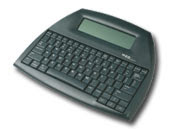A voucher system to provide extra lessons for the brightest 10% of children in England is being introduced in schools, the Department for Education and Skills said today..
The initiative will help an estimated 800,000 pupils who will be able to spend their vouchers on additional courses, "master classes" at university-run summer schools or online evening classes.
The scheme, an extension of the government's National Academy of Gifted and Talented Youth, which has run into passive resistance from a sizeable minority of schools, is being promoted by Lord Adonis, the schools minister and former No 10 adviser
To read article click here
This is an interesting proposal, except how would it be administered and are national curriculum tests any real indicator of the gifted population? I find that an unlikely prospect, as we all know standardised testing is intensely flawed and designed to fill up numbers in tables on charts, rather than accurately identify any individual strengths.
Here's another link to another interesting paper called: Investigating the notion of children with multiple exceptionalities which mentions learning disabilities and ADHD and high ability.



